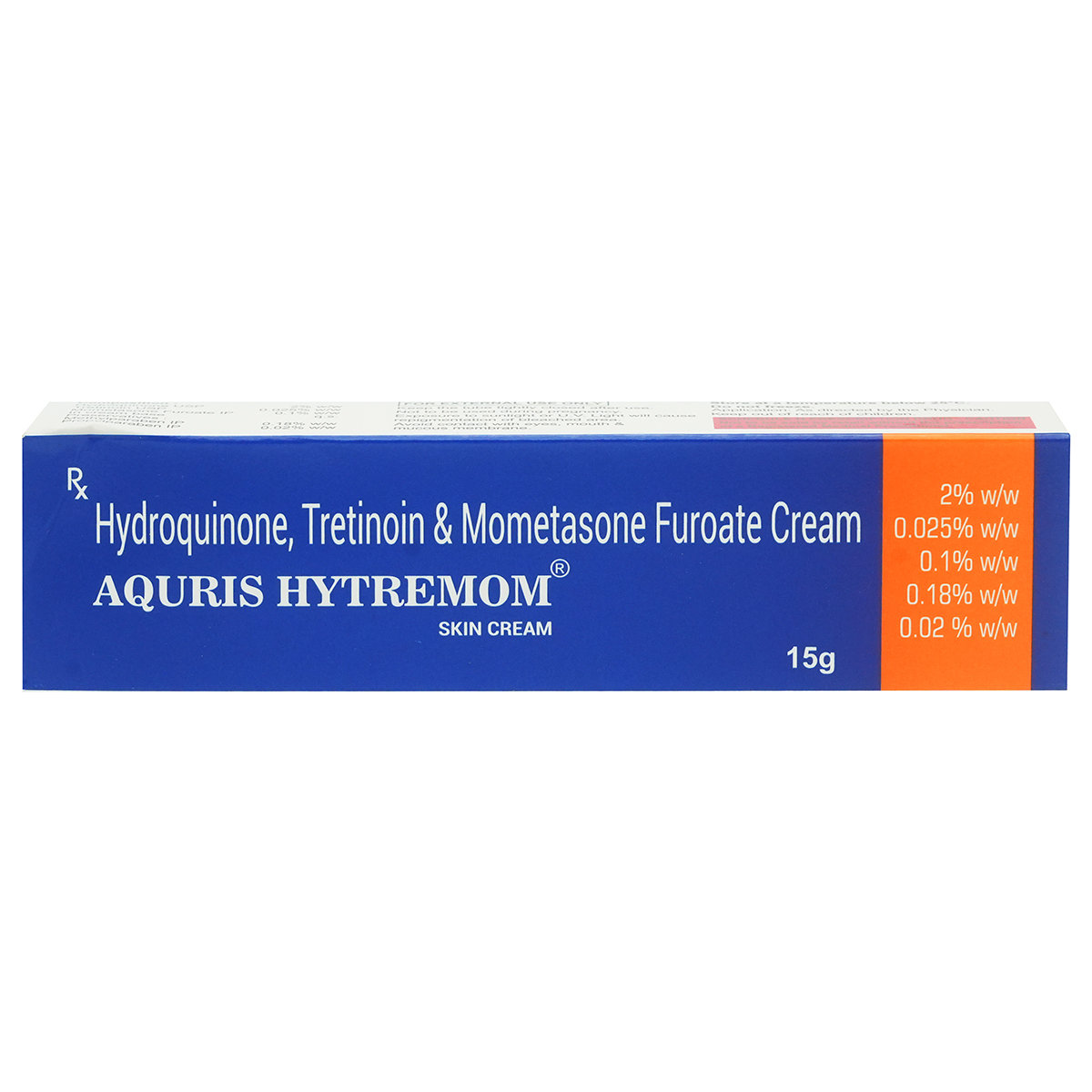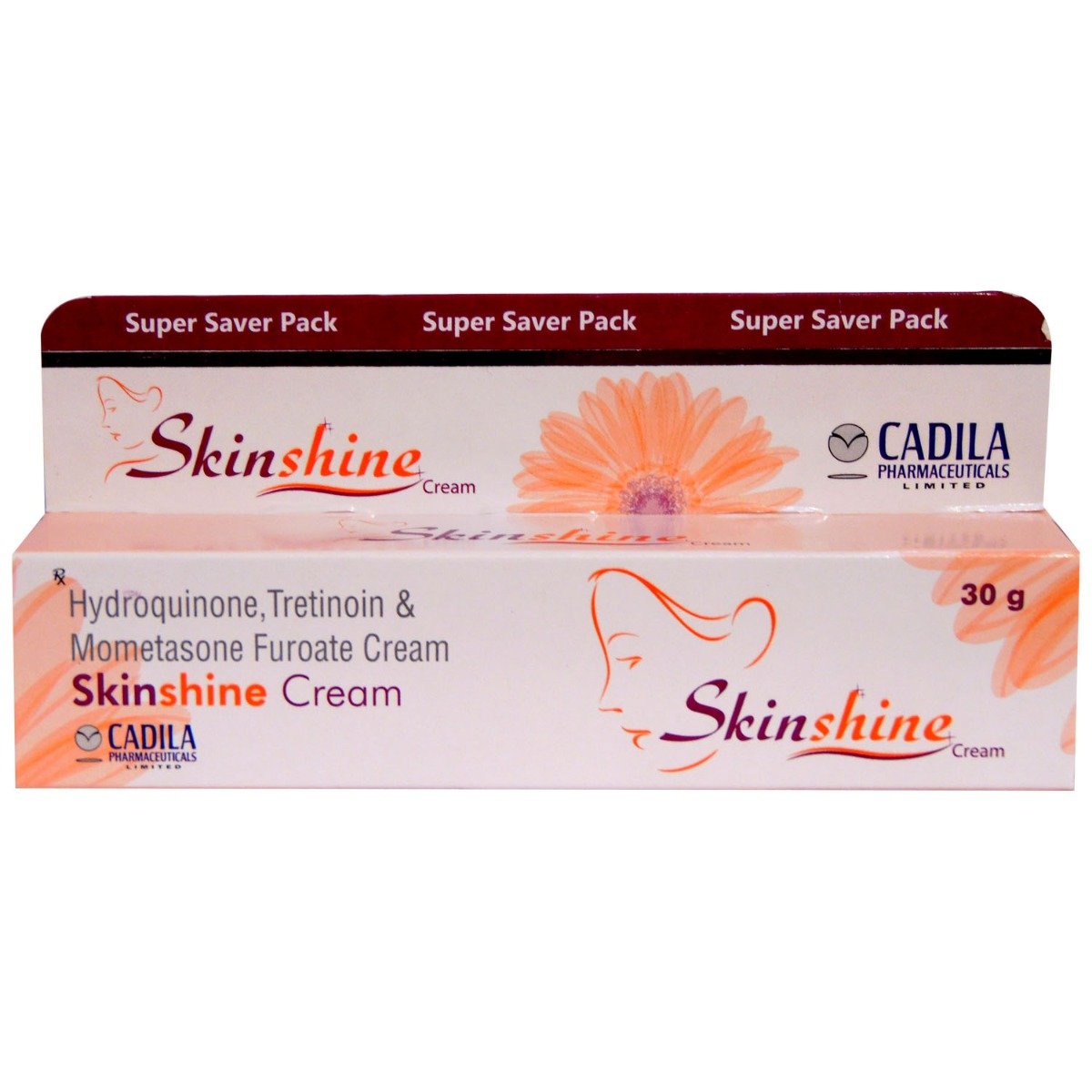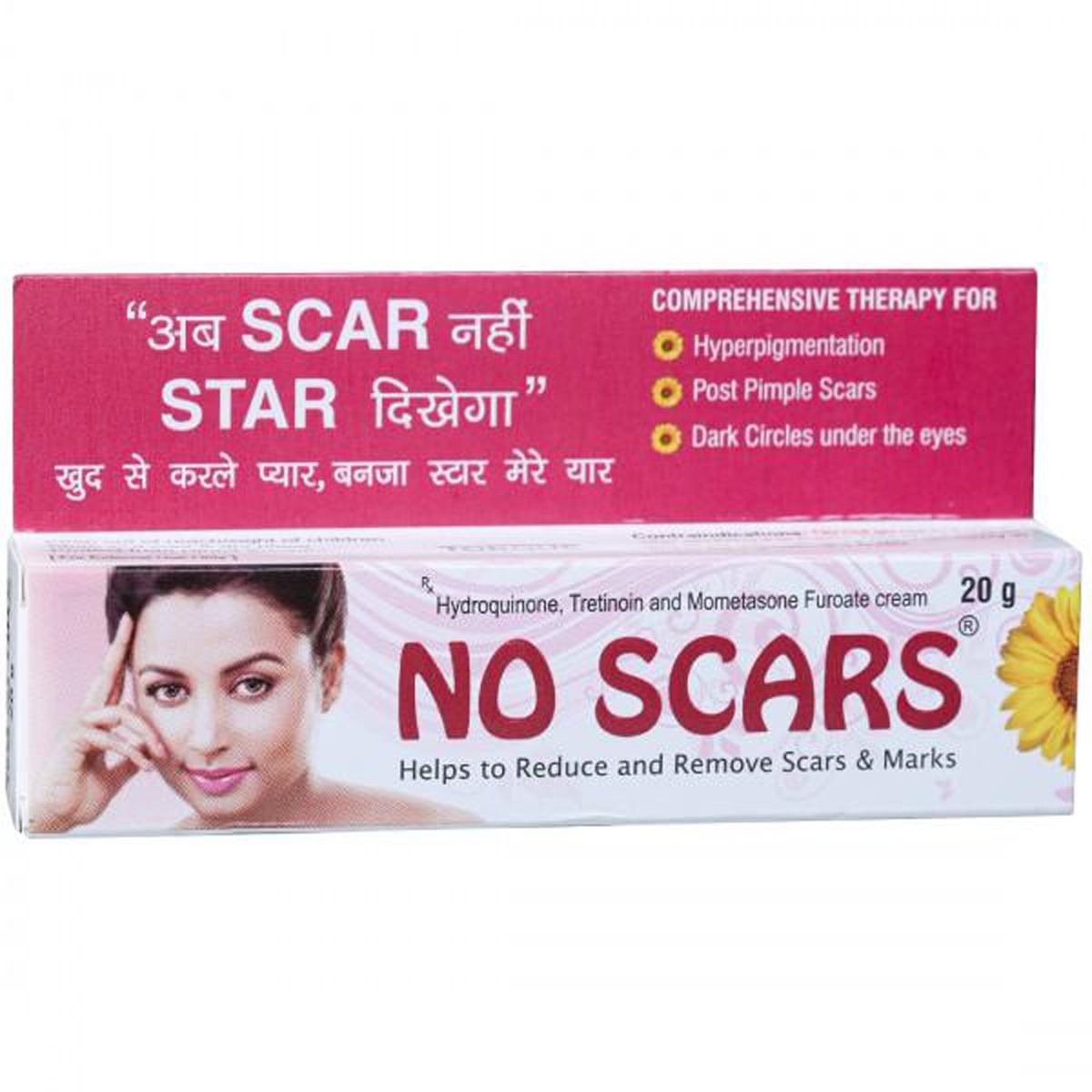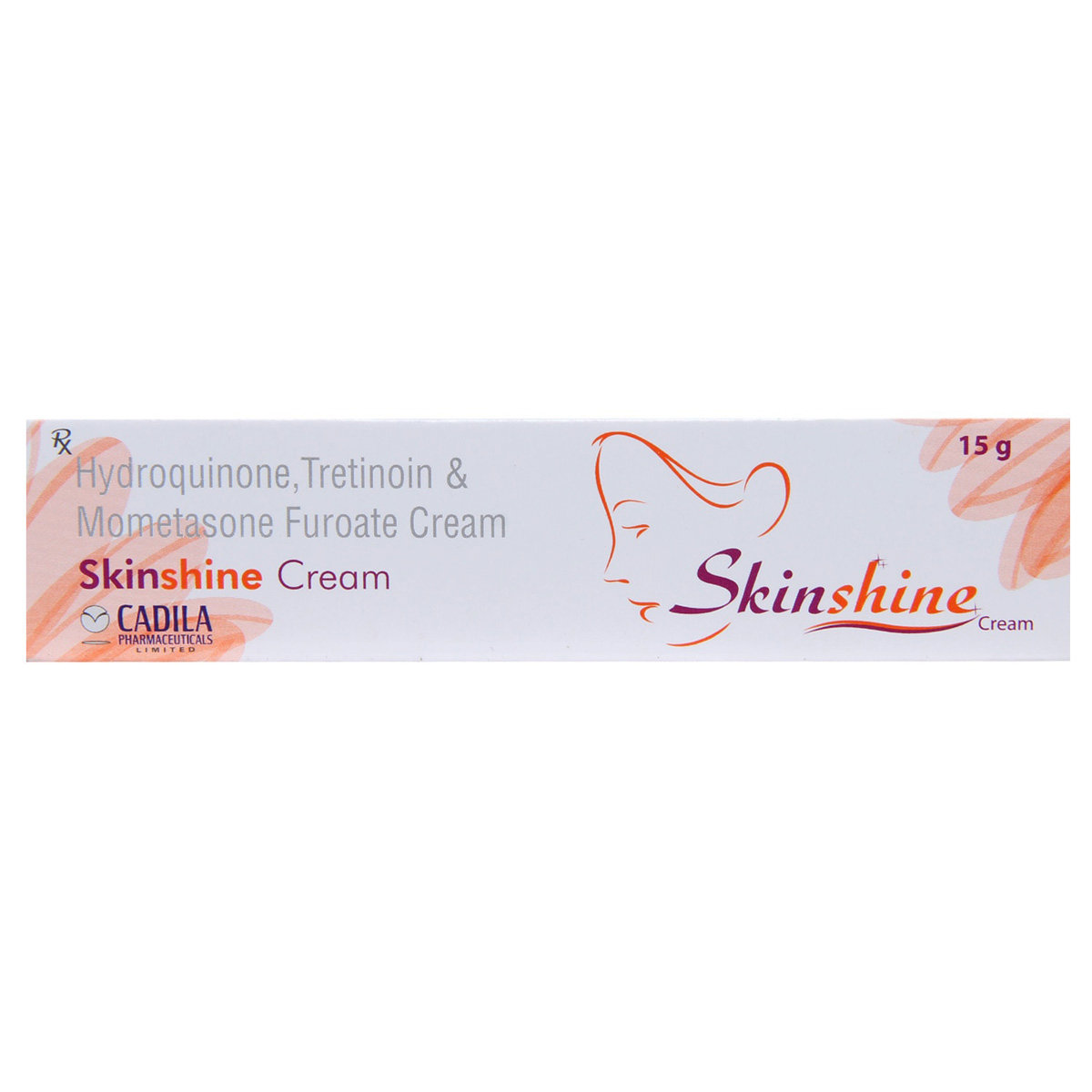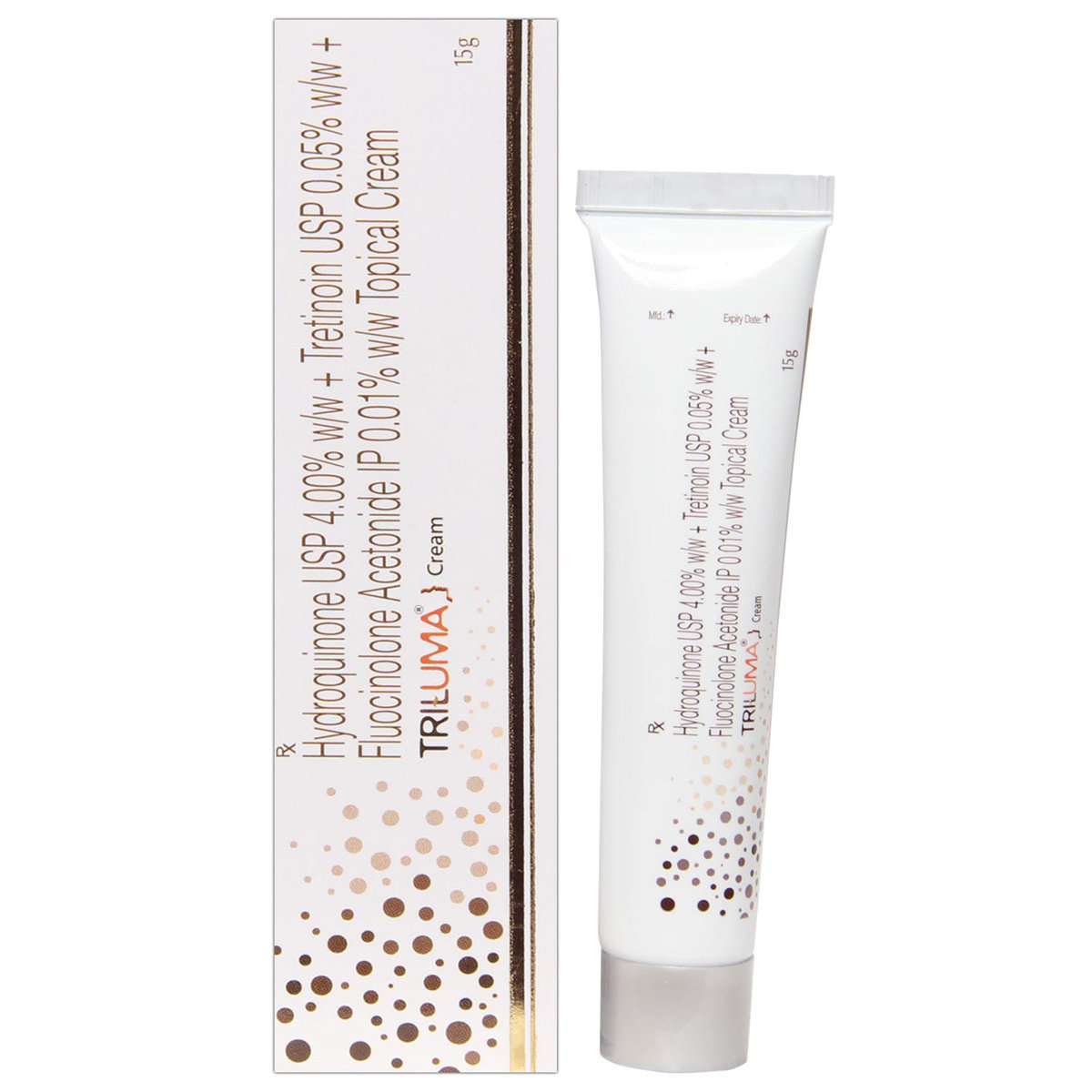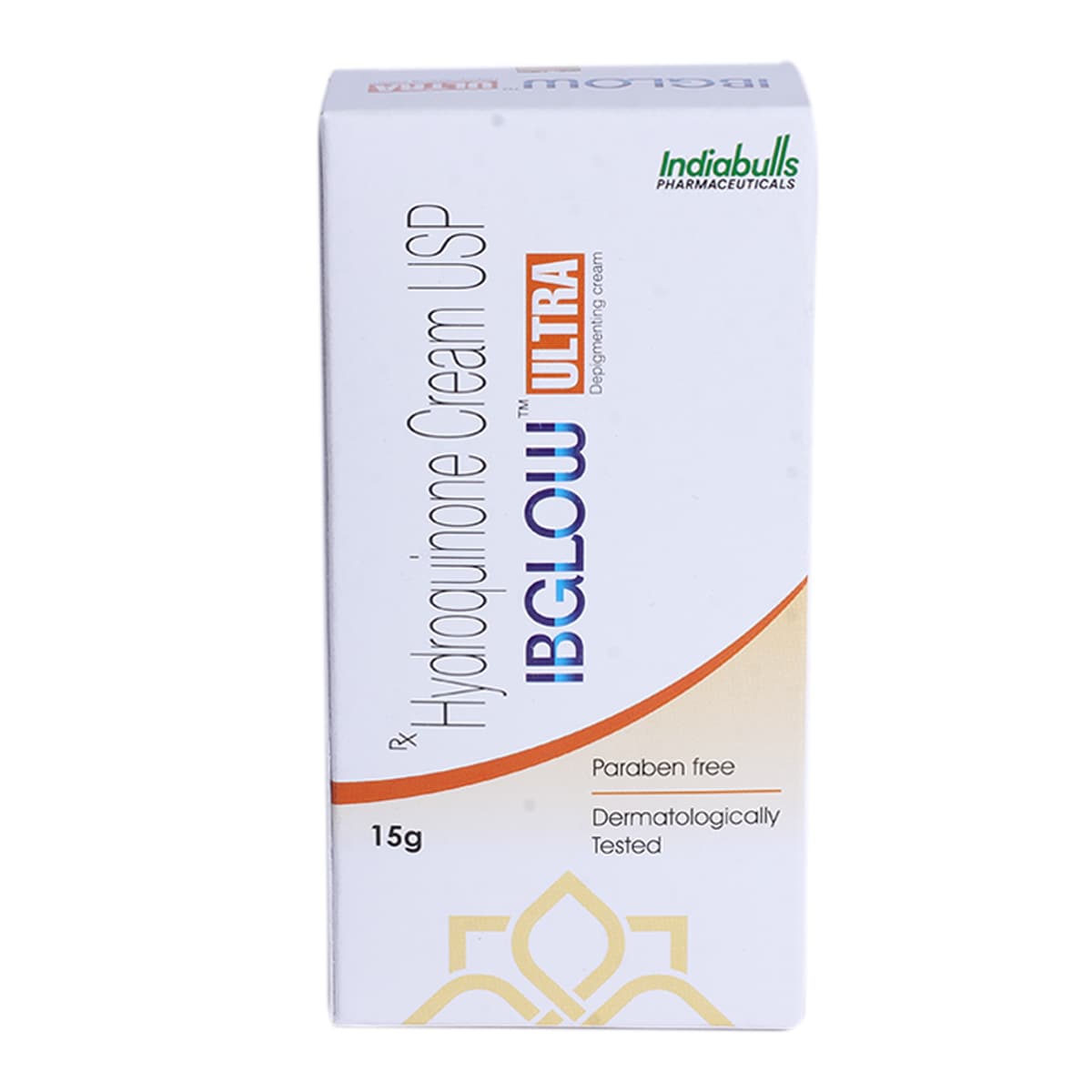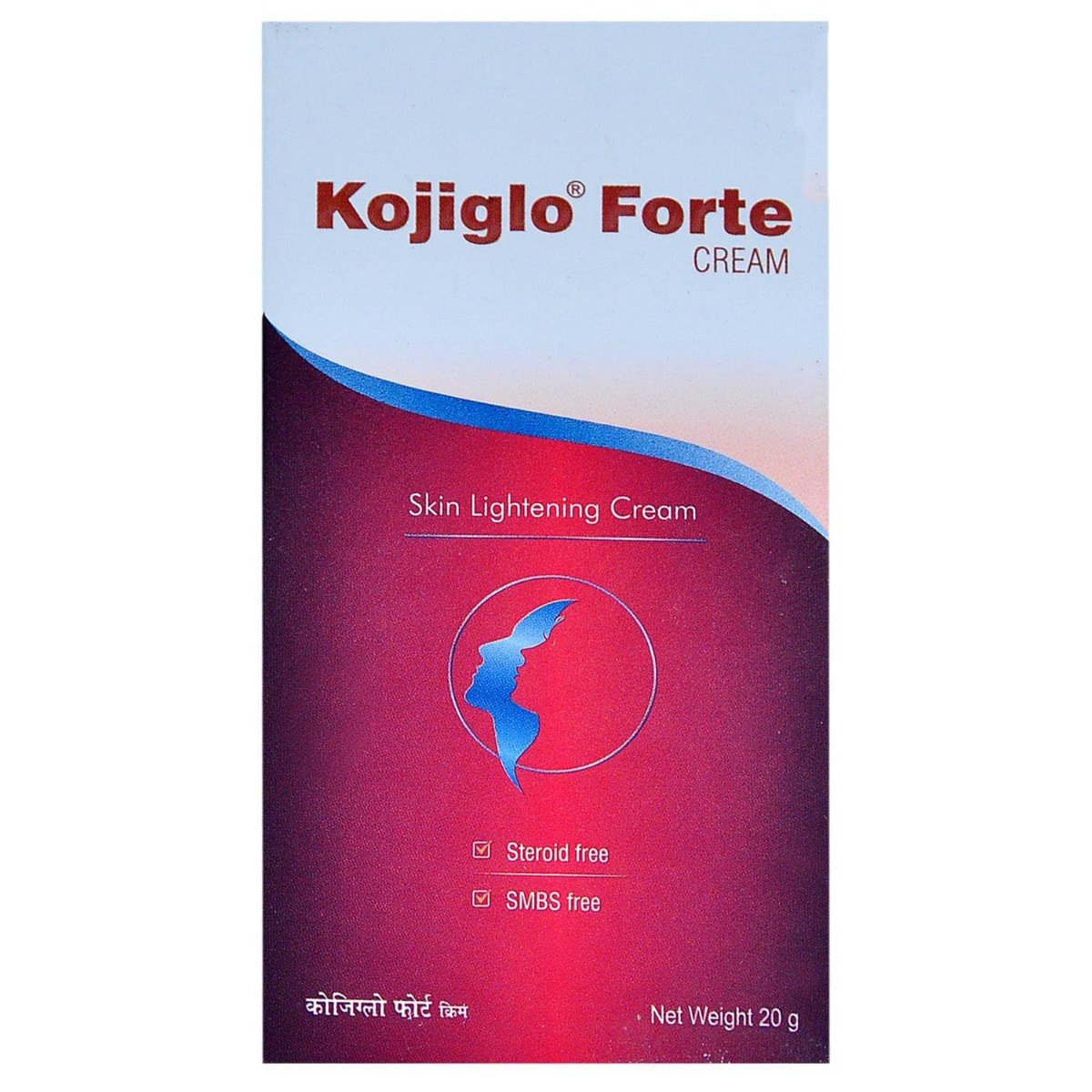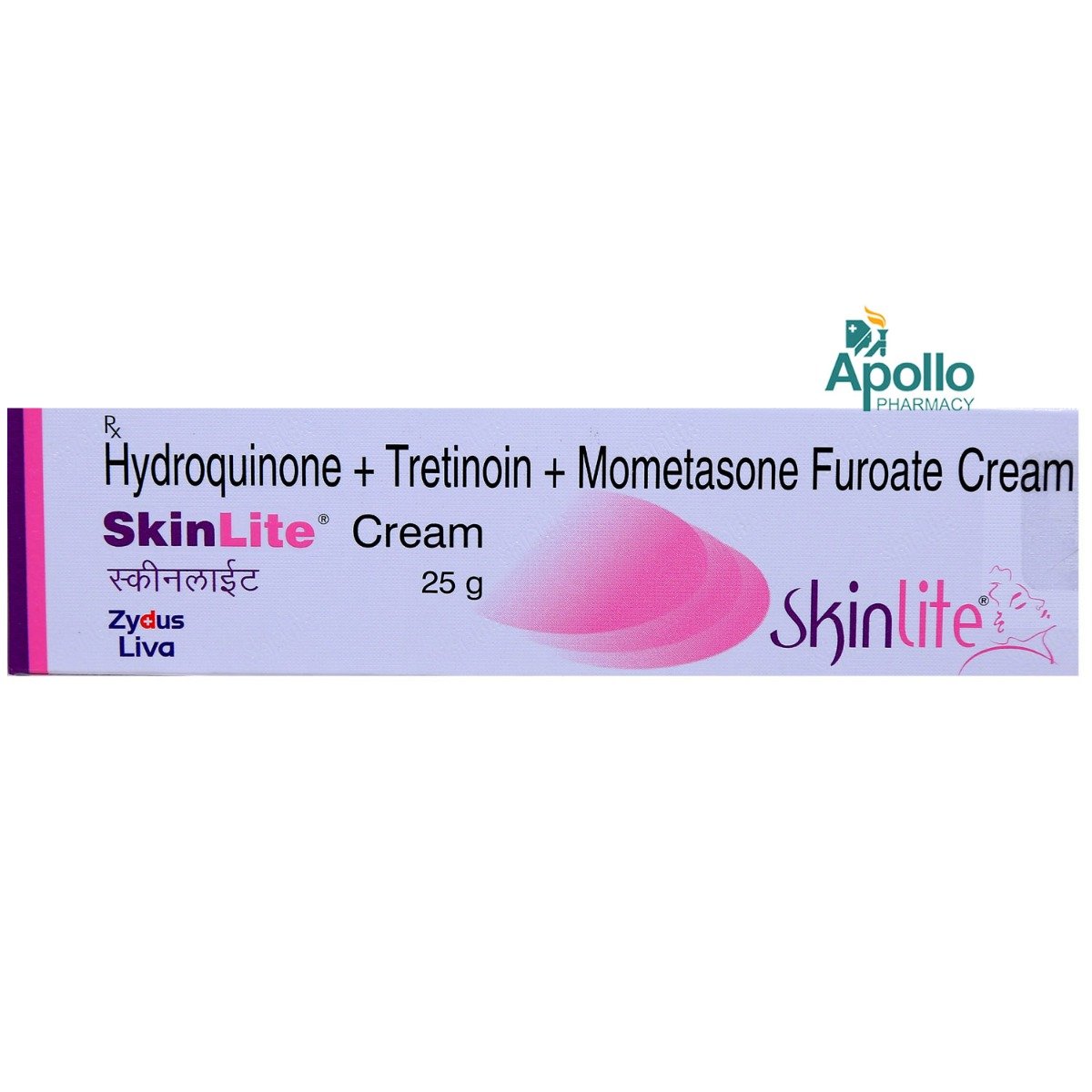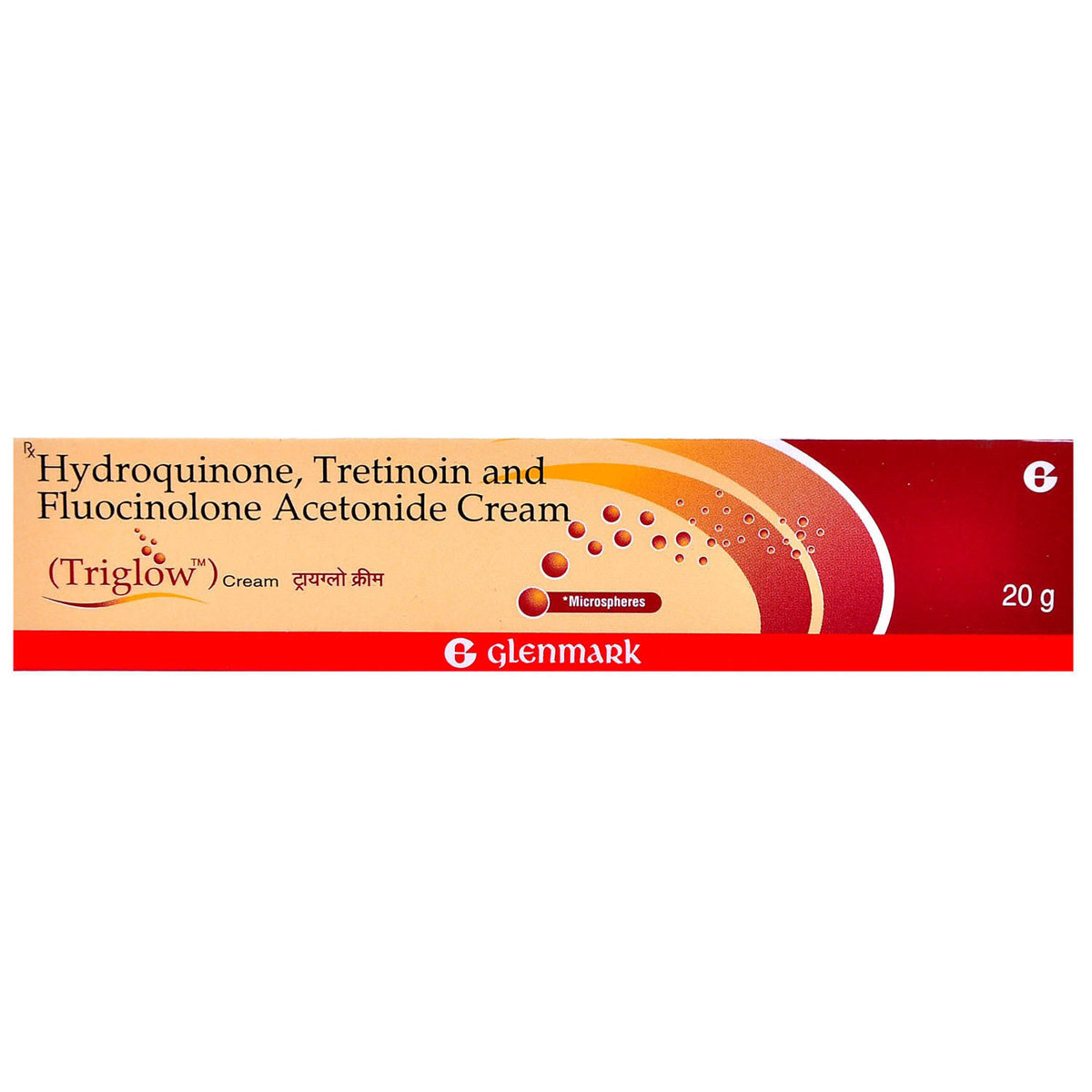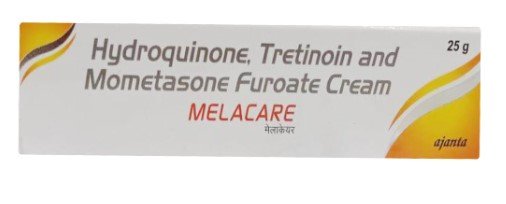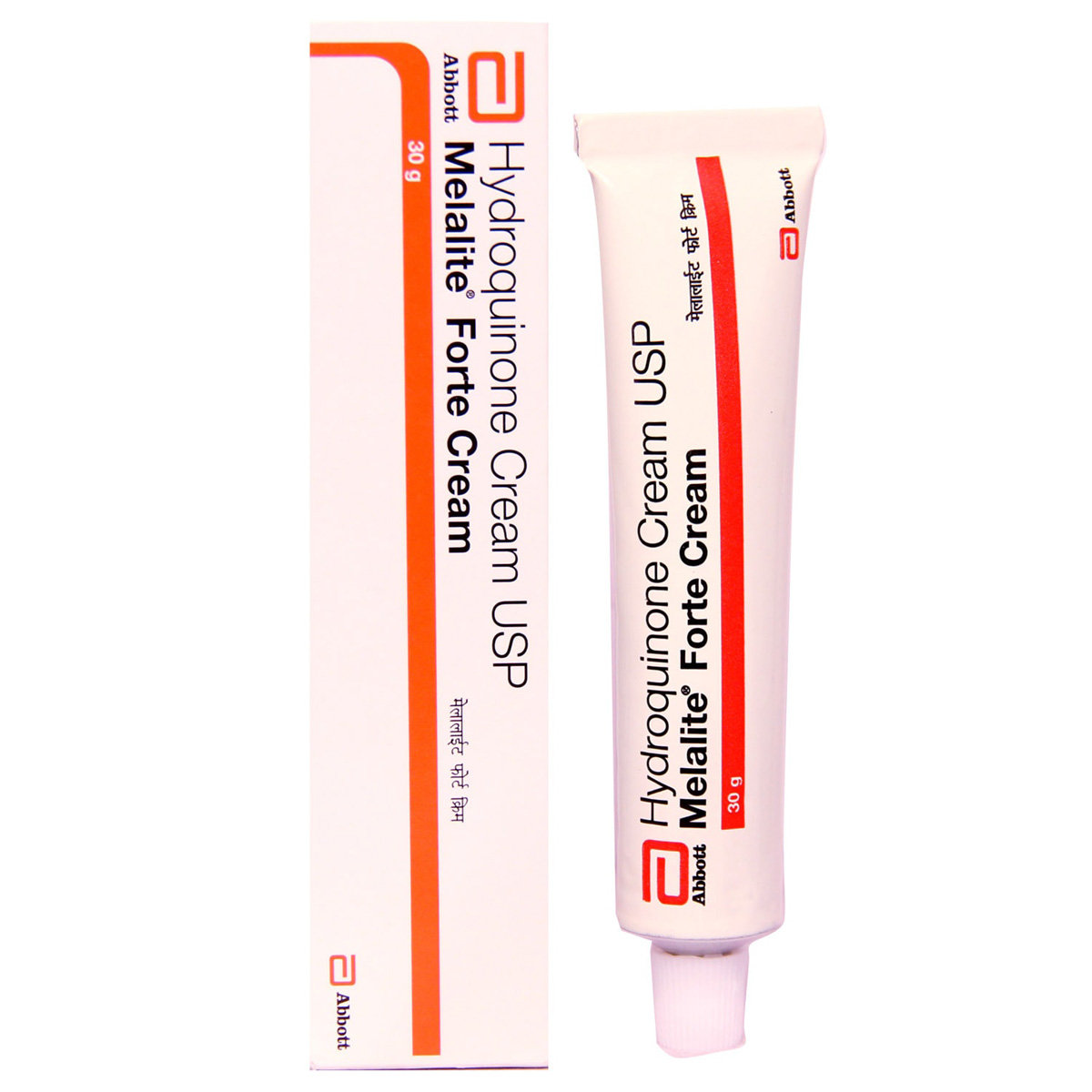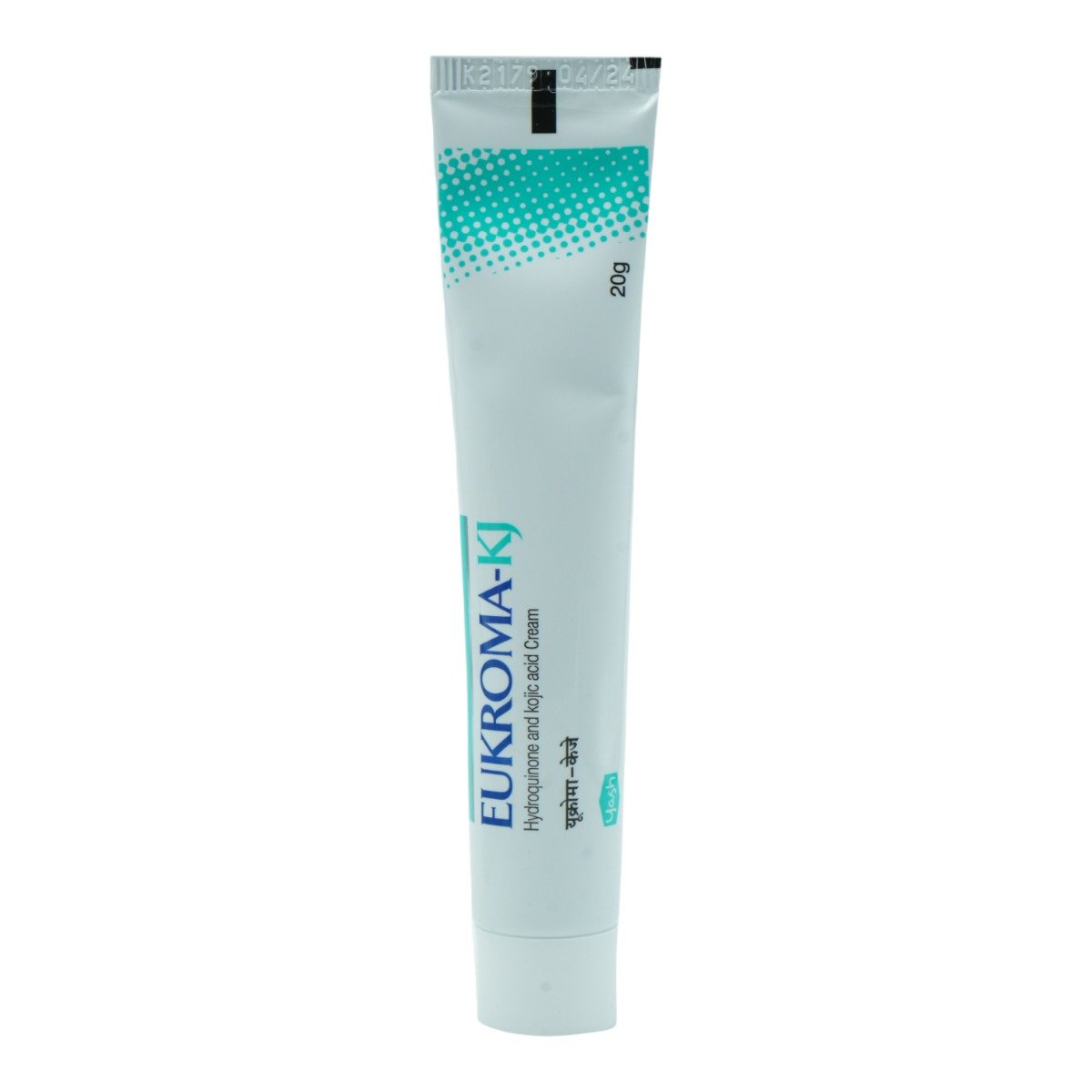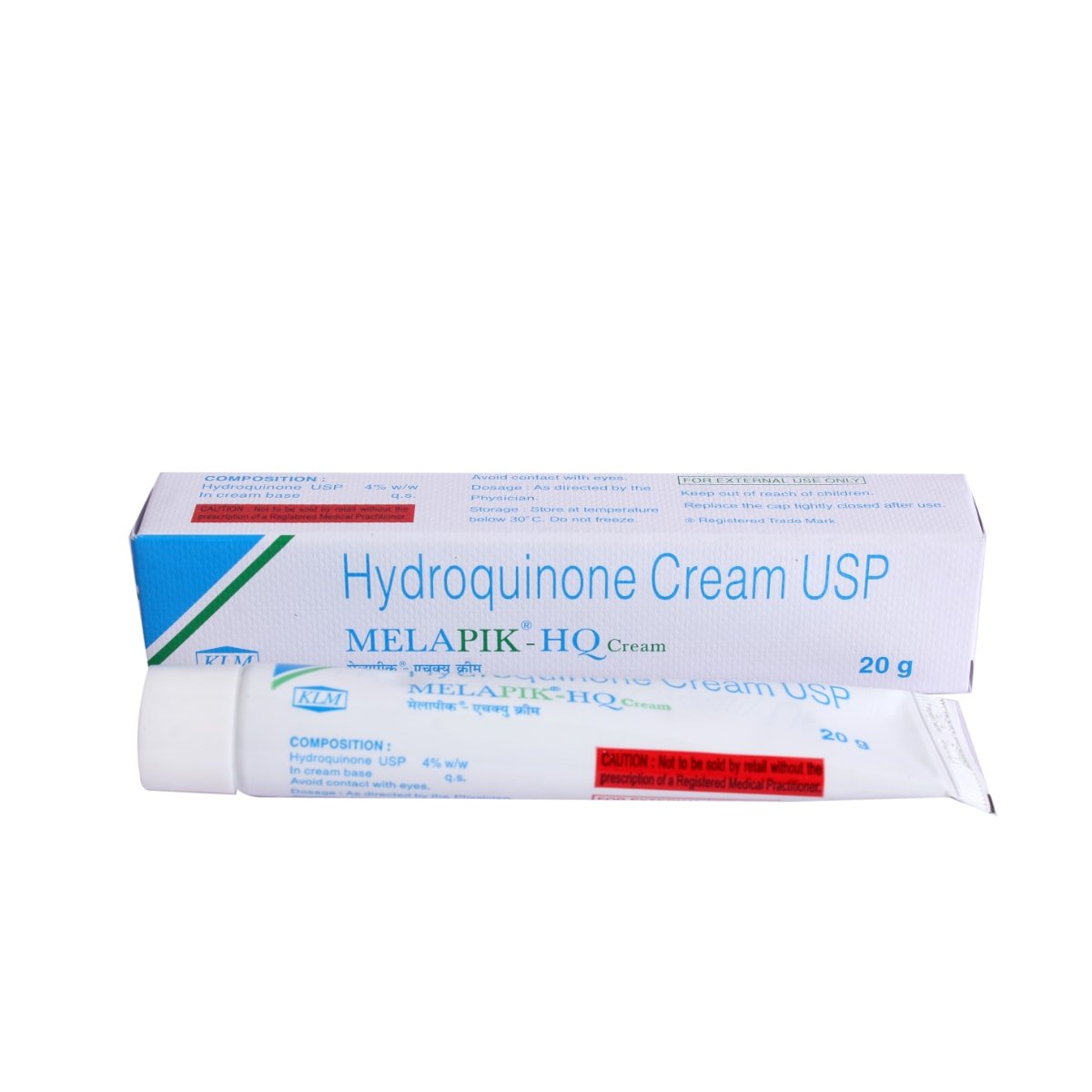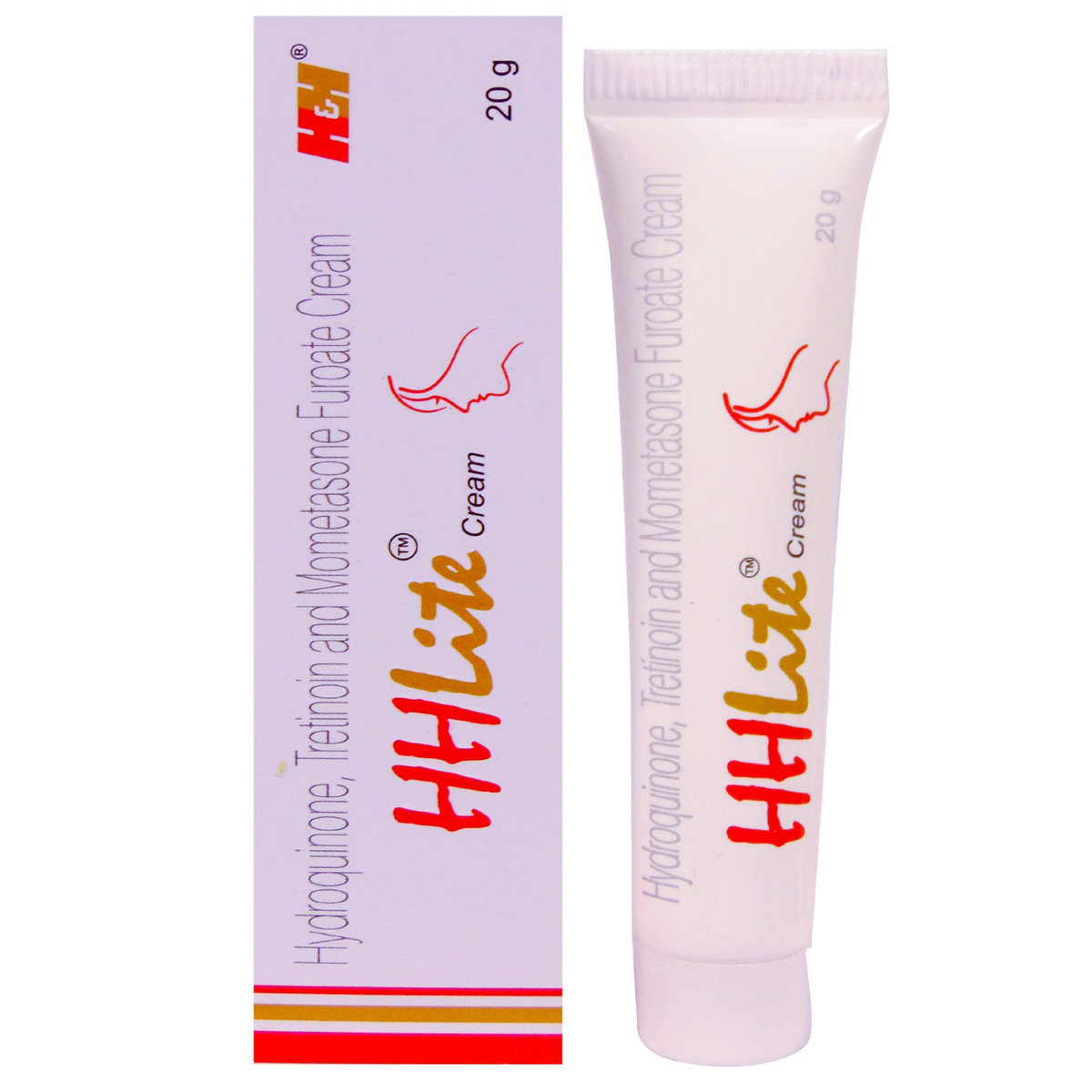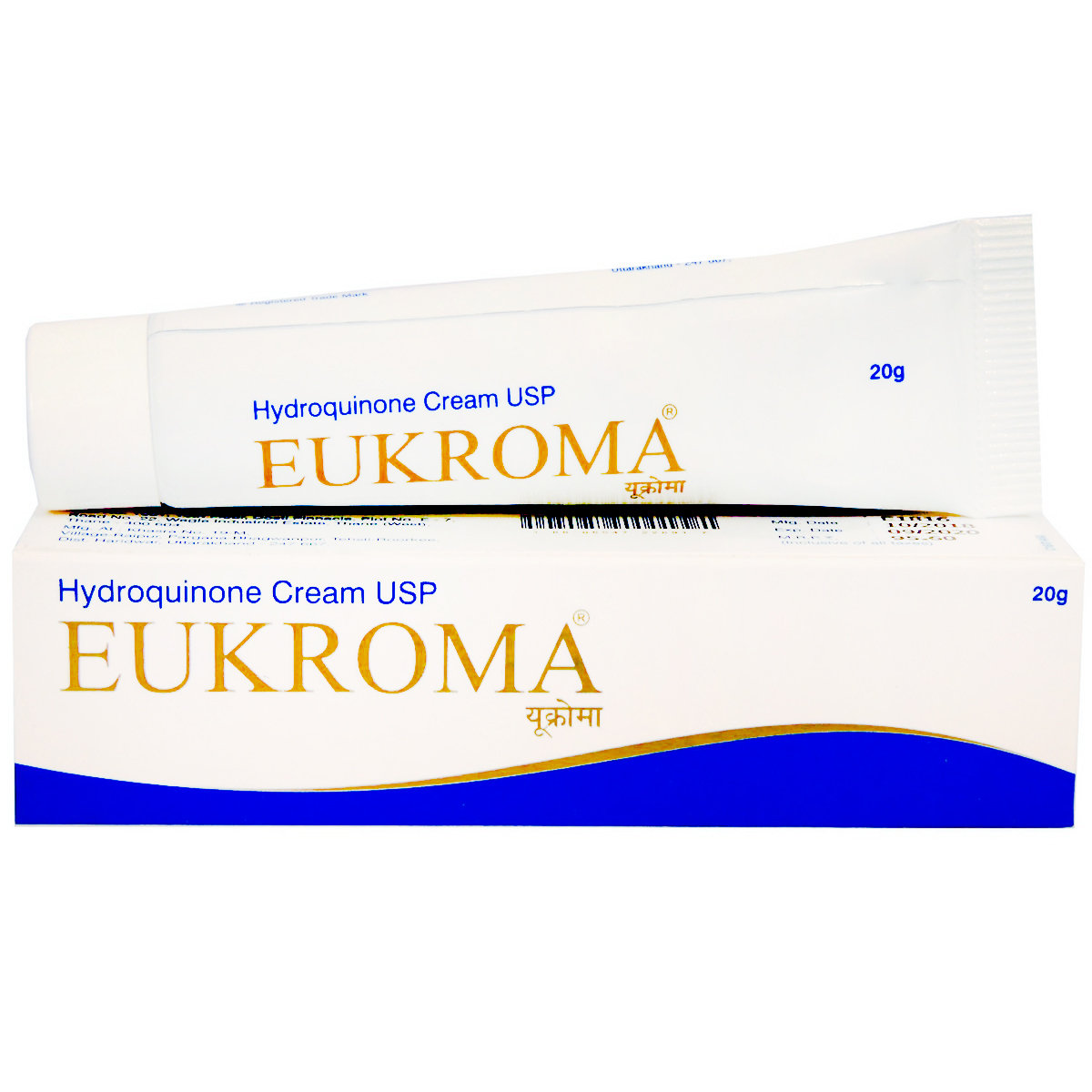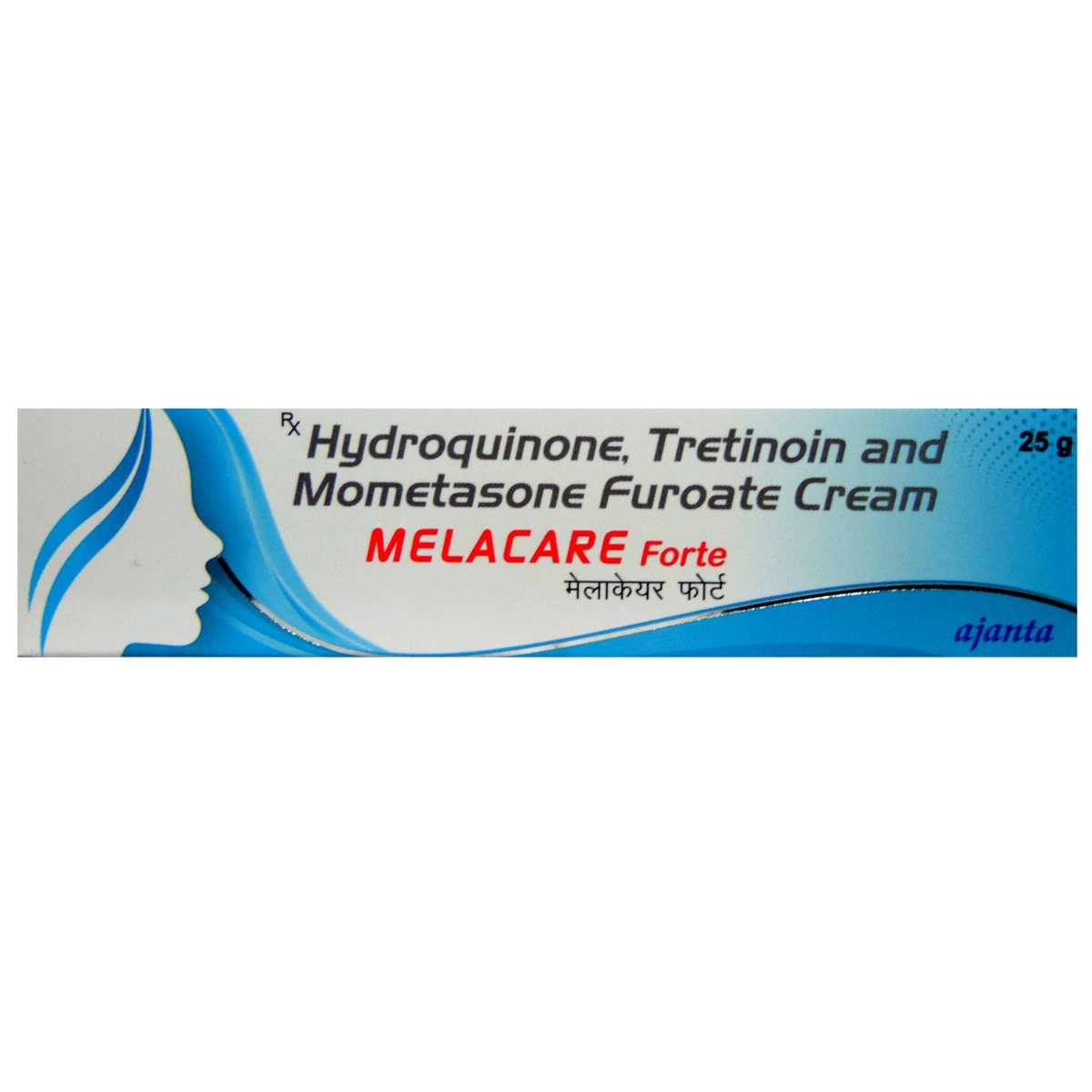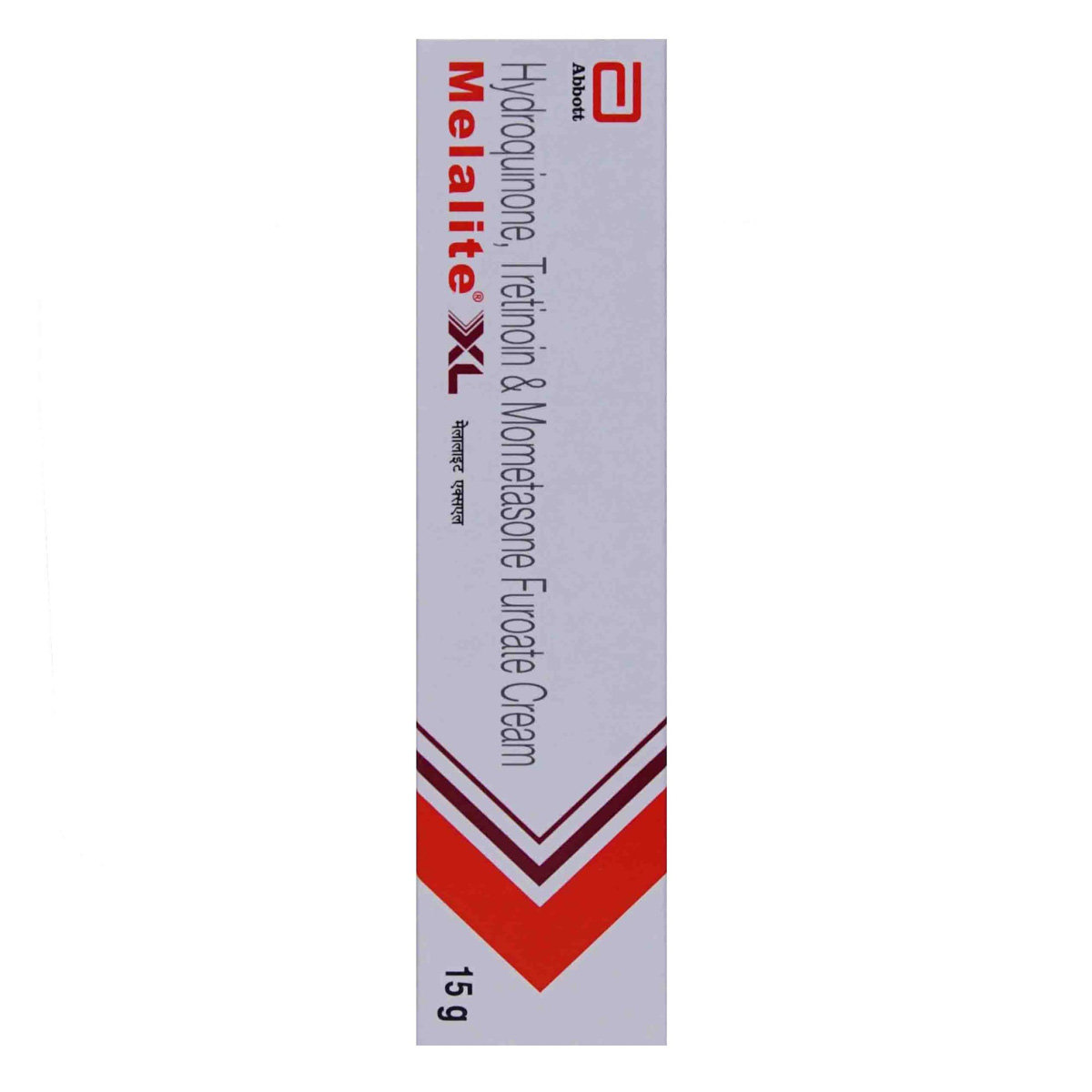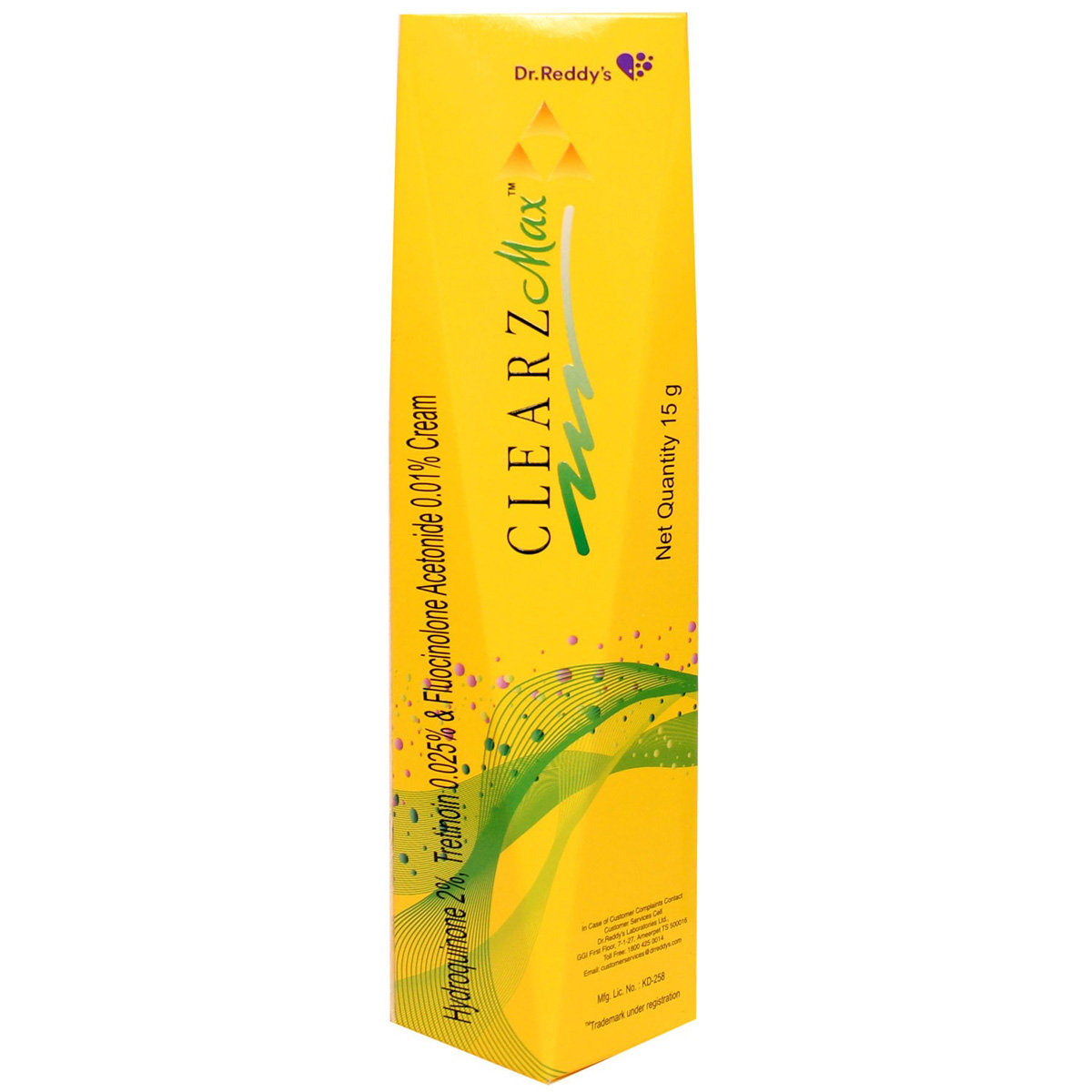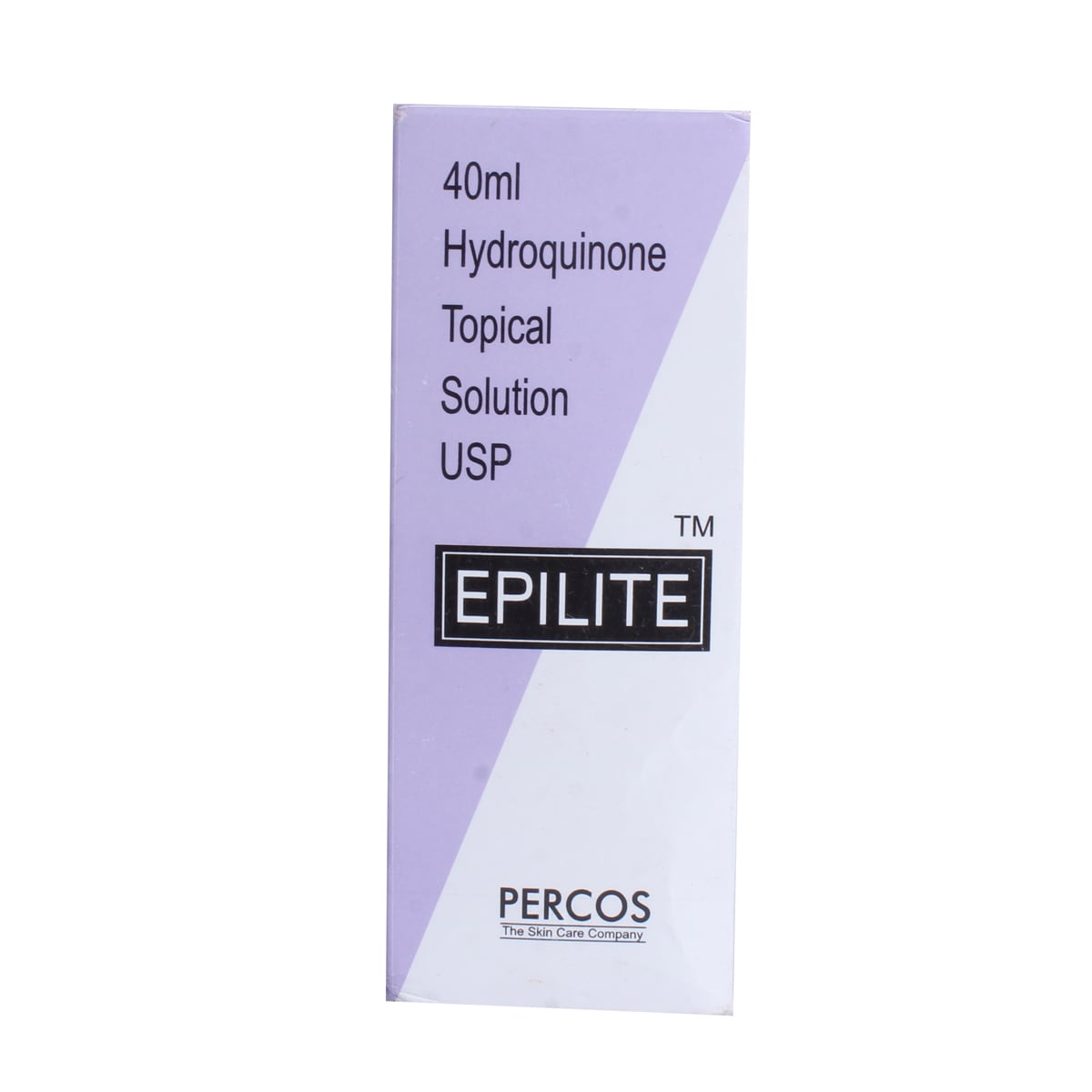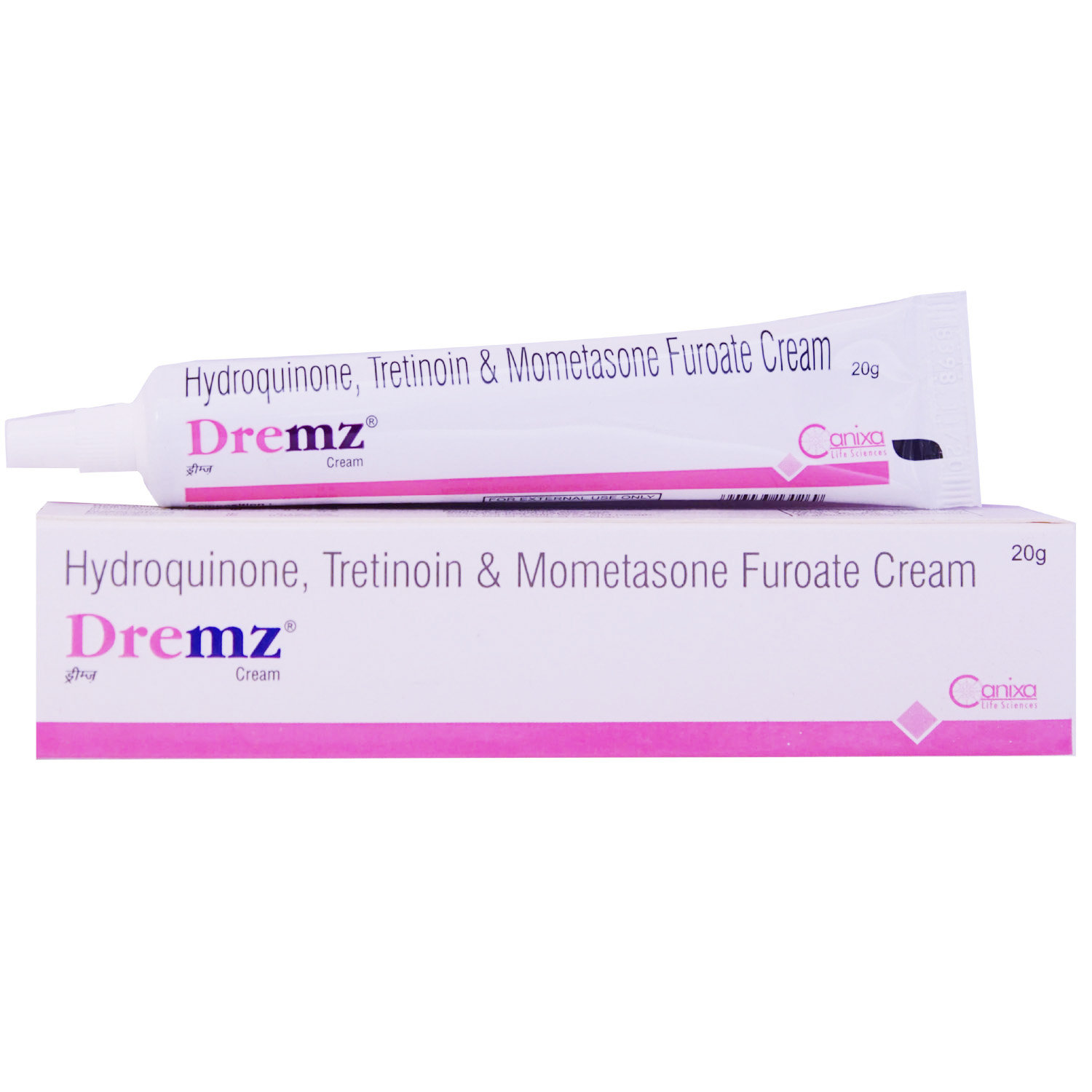Hydroquinone
About Hydroquinone
Hydroquinone treats melasma and hyperpigmentation. Hyperpigmentation is a skin condition in which patches of skin become darker in colour than the normal surrounding skin. Melasma is a common skin problem that causes dark, discoloured patches on your skin.
Hydroquinone contains Hydroquinone, which decreases the amount of melanin (a skin pigment) responsible for darkening the skin.
Common side effects of Hydroquinone include dry skin, redness, burning sensation, mild itching, and skin irritation. Most of these side effects do not require medical attention and gradually resolve over time. However, if the side effects persist or worsen, please consult your physician.
Avoid using Hydroquinone if allergic to any of its components. Hydroquinone can make the skin more sensitive to sunlight; hence, always use sunscreen and protective clothing before you step outdoors. Let your doctor know if you are pregnant, planning to conceive, or breastfeeding.
Uses of Hydroquinone
Medicinal Benefits
- Reduces melanin production, thereby reducing hyperpigmentation.
- Beneficial for melasma (chloasma).
- Helps to lighten ageing and black spots.
- Useful for post-inflammatory hyperpigmentation following skin injuries or acne.
- Aids in fading sun-induced pigmentation and freckles.
- Helps enhance uneven skin tone.
- It helps clear the complexion, acne scars, and photoaging (premature skin ageing caused by repeated exposure to UV radiation).
Directions for Use
- Use Hydroquinone twice daily; however, follow your doctor’s recommendation regarding the dosage and duration.
- Apply the recommended amount of the medicine with clean, dry hands to the affected areas. Gently massage the medicine into the skin with your fingers.
- Avoid getting it into the eyes or mouth. If contact occurs, rinse it with plenty of water.
- Wash your hands before and after using Hydroquinone.
Storage
Side Effects of Hydroquinone
- Dry skin
- Erythema (skin redness)
- Burning sensation
- Mild itching
- Skin irritation
Medicines Containing this Salt
View AllDrug Warnings
- If you are allergic to Hydroquinone or any other medicines, please tell your physician.
- Hydroquinone is not recommended for children below 12 years of age.
- It is recommended to avoid tanning booths and sunlamps.
- Do not apply Hydroquinone in large amounts or use it for a longer time than recommended, as it does not give quick or better results but increases the risk of side effects.
- Do not apply Hydroquinone on open wounds or sunburned, windburned, dry, chapped, or irritated skin.
- Hydroquinone is for external use only. Avoid contact of Hydroquinone with nose, ears, mouth, or eyes. In case Hydroquinone comes in contact with these areas accidentally, rinse with water thoroughly.
- If you are pregnant or a nursing mother, please inform your physician before using Hydroquinone.
- Let your doctor know if you have kidney or liver problems, eczema or asthma.
Drug Interactions
Drug-Drug Interactions: No interactions found.
Drug-Food Interactions: No interactions found.
Drug-Disease Interactions: No interactions found.
Drug-Drug Interactions Checker List:
Safety Advice

Alcohol
consult your doctorThe interaction of Hydroquinone with alcohol is unknown. Please consult a physician before consuming alcohol while using Hydroquinone.

Pregnancy
consult your doctorHydroquinone is safe to use in pregnant women. However, please consult a physician if you are pregnant before using Hydroquinone.

Breast Feeding
consult your doctorHydroquinone is safe to use in breastfeeding women. However, please consult a physician if you are breastfeeding before using Hydroquinone.

Driving
safe if prescribedHydroquinone usually does not affect your ability to drive or operate machinery.

Liver
consult your doctorHydroquinone is safe in liver patients. If you have any concerns about using Hydroquinone in patients with liver problems, please consult a physician.

Kidney
consult your doctorHydroquinone is safe in kidney patients. If you have any concerns regarding the use of Hydroquinone in patients with kidney problems, please consult a physician.

Children
unsafeHydroquinone is not recommended for children below 12 years of age.
Habit Forming
Diet & Lifestyle Advise
Healthy Diet:
- Consume vitamin C-rich foods to aid in skin regeneration, such as oranges, lemons, amla, and strawberries.
- Incorporate foods high in antioxidants, such as green leafy vegetables, tomatoes, carrots, and berries.
- For skin healing, take enough protein (dal, legumes, eggs, fish, and lean meat).
- To keep your skin hydrated, drink a lot of water.
Sun exposure:
- Avoid direct sun exposure. Always wear a broad-spectrum sunscreen with an SPF of 30 or higher.
- When you're outside, wear protective gear like umbrellas, scarves, or hats.
Special Advise
- Consult your dermatologist if you do not notice any improvement after 2-3 months of treatment with Hydroquinone.
Patients Concern
Disease/Condition Glossary
Hyperpigmentation: It is a skin condition in which patches of skin become darker in colour than the normal surrounding skin. This darkening of skin occurs when an excess of melanin (hormone), the brown pigment that produces normal skin colour, forms deposits in the skin.
Melasma: It is also known as chloasma, a common skin condition that causes brown patches on the face. The discoloured (grey-brown) patches occur mostly on the forehead, chin, nose and cheeks. Melasma may be caused by sun exposure, hormone therapy, pregnancy, birth control pills, thyroid or even stress. It is more common in women than in men.
FAQs
Hydroquinone is used to treat melasma, hyperpigmentation, dark spots, and photoaging (premature skin ageing caused by repeated exposure to UV radiation).
Hydroquinone contains Hydroquinone, a whitening agent that reduces melanin (a chemical that determines the colour of the skin and hair) production, thereby lightening the complexion of the skin.
You are advised to use moisturiser in the morning every day to restore the fat barrier of the skin that protects the skin from damage. Hydroquinone may make the skin more sensitive to extreme weather conditions such as cold and wind. Therefore, wear protective clothing and use moisturiser as required. However, please consult a physician before using moisturising lotions or other products with Hydroquinone.
Hydroquinone is a natural skin-lightening product that reduces melanin production, improves skin tone, texture, and sensitivity, and reduces skin's uneven colour. Using it for some days lightens the appearance of scars.
No, it is not advised to stop using Hydroquinone even after your symptoms are relieved. You should complete the full course of treatment. You might see improvement in your symptoms, but the condition might not be cured completely.
Hydroquinone can make your skin more sensitive to the harmful effects of sunlight. Hence, it is advised to use sunscreen and protective clothing while using Hydroquinone. It is recommended to avoid tanning booths and sunlamps.
It is not recommended to use Hydroquinone with benzoyl peroxide, hydrogen peroxide, or any other peroxide products, as it may cause skin staining, which can usually be removed with soap and water. However, please consult a physician before using other medicines with Hydroquinone.
Hydroquinone is generally considered safe for facial use, being specifically formulated to address melasma, hyperpigmentation, and dark spots. For optimal safety, consulting a dermatologist, following instructions, and conducting a patch test are recommended prior to facial application.
No, Hydroquinone does not permanently lighten the skin. It is designed to reduce the appearance of hyperpigmentation, dark spots, and melasma, resulting in a more even skin tone. However, once you stop using the cream, your skin may gradually return to its original tone.
When using Hydroquinone, avoid prolonged sun exposure, harsh skin products, exfoliating or scrubbing the treated area, sharing the cream, and applying it to broken or irritated skin. If you're allergic to any ingredients or have sensitive skin, consult a dermatologist before use.
Hydroquinone should be applied as directed by your dermatologist or according to the product's instructions. Typically, a thin layer of the product is applied gently to the affected area, once or twice a day. The application frequency and duration may vary depending on the specific skin concern being treated, such as melasma, hyperpigmentation, or dark spots.
Hydroquinone is generally considered safe for most skin types when used as directed. However, as with any skincare product, some individuals may experience adverse reactions or side effects. It's essential to follow the recommended usage instructions and consult a dermatologist if you have sensitive skin or concerns.
Common side effects of Hydroquinone include dry skin, erythema (skin redness), burning sensation, mild itching, and skin irritation. However, not everyone who uses Hydroquinone will experience these side effects. Most of these side effects are temporary and resolve on their own, but if they persist or worsen, consult your physician for guidance.
